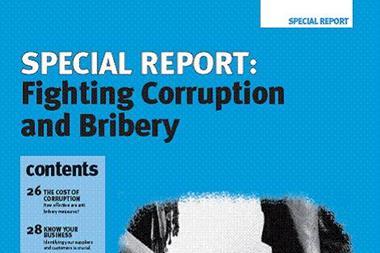Companies that resort to price fixing to boost profits in the recession will be targeted, warns law firm
Businesses which resort to price fixing or breach competition rules in an attempt to boost profits in the recession may be the subject of a new clampdown by the Office of Fair Trading (OFT), warns law firm DWF.
According to DWF, the OFT has indicated it will take a more heavy-handed approach to enforcement as the downturn makes it more likely that companies will break the law.
Rupert Nevin, a partner in DWF’s regulatory team, said: ‘Companies are now facing conditions which can challenge even the most efficiently run businesses. Recession can alter a business's focus as efforts are channelled into restructuring and cost-cutting. The board and senior management may welcome unexpected profits but fail to ask questions that might expose risks being taken.’
‘The OFT recognises that at times like these it may be tempting for some businesses to breach the law. We can expect to see targeted enforcement in financial services, construction, retail and consumer markets, in particular those where large groups of individuals suffer large losses as a result of price fixing and monopoly activity.’
“Individuals within a business can now also be charged with criminal offences.
Individuals within a business can now also be charged with criminal offences, warned DWF.
Three executives were jailed June last year for their involvement in a cartel, although the sentences were reduced on appeal in the first criminal prosecutions of this type. Then in August four people were charged in relation to alleged price-fixing of flight fuel surcharges.
Nevin adde: ‘Clearly the OFT will continue to pursue criminal charges against individuals as well as penalties against businesses to bring home to directors the risks that they take in breaking the rules.’
‘It is even more important at this time that senior management understand the issues and risks that affect their businesses. Companies need to create a culture of compliance where staff at all levels are sufficiently confident to challenge questionable practices at an early stage. We would also advise companies to put a competition compliance policy in place. Not only does this help prevent infringements but it also protects businesses in the event of transgression, as a well drafted policy can substantially mitigate penalties.’



















No comments yet